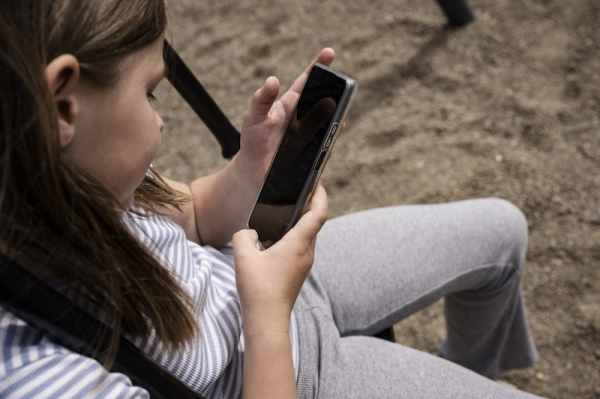The Finnish Medical Journal: Parents seek doctor’s notes for school phone use

Photo: Roni Rekomaa / Lehtikuva
- Next Article Long-term unemployment in Finland hits highest level of the 21st century
The nationwide mobile phone ban in Finnish schools is already leading to requests for medical exemptions, The Finnish Medical Journal reports, with some parents asking doctors to permit classroom phone use on mental health grounds.
According to Riittakerttu Kaltiala, professor of youth psychiatry at Tampere University and chief physician at the university hospital, parents have begun contacting specialist care units to request doctors’ statements supporting their child’s need to use a phone during school hours due to anxiety.
“The idea that a young person needs to stay in constant contact with a parent during school to manage anxiety is a misconception,” Kaltiala said.
She stressed that no psychiatric condition in adolescence justifies isolating the child in a “phone bubble” between parent and child. Instead, adolescent development relies on growing independence, expanding social circles, and peer engagement.
The phone ban, which came into effect at the beginning of August, prohibits unauthorised mobile device use in Finnish comprehensive schools during lessons. Schools and municipalities are free to impose stricter rules if they choose. Some schools have extended the restriction to break and lunch periods as well.
The law allows phone use in class only when authorised by a teacher or principal for health-related reasons. This includes, for example, monitoring blood sugar levels for diabetic students or handling temporary health issues requiring the use of a mobile device.
Kaltiala said the requests for medical exceptions demonstrate how overdue the phone ban was.
“These appeals alone show this restriction should have been introduced years ago,” she said.
The fear, according to Kaltiala, is not necessarily about anxiety itself but about the absence of the phone as a coping tool. She advised schools and parents to work together to establish clear alternatives for students in distress.
“When a young person feels anxious, there should be a plan in place, someone they can turn to, or something they can do,” she said. “It’s more likely they’re afraid of being without the phone, not the situation itself.”
She urged against a gradual phasing out of phone dependence.
“This isn’t something to ease away from. The phone must go, and other forms of support must take its place.”
A key part of adolescence, she added, is moving away from early-childhood dependency and building self-reliance.
“Independence doesn’t mean a teenager no longer needs their parents,” she said. “But development is not healthy if there’s a constant need to cling to them through the phone.”
She said phone separation can, in fact, support mental health by helping young people develop the tools to manage difficult situations on their own and build more meaningful peer relationships.
HT
- Next Article Long-term unemployment in Finland hits highest level of the 21st century
Source: www.helsinkitimes.fi
